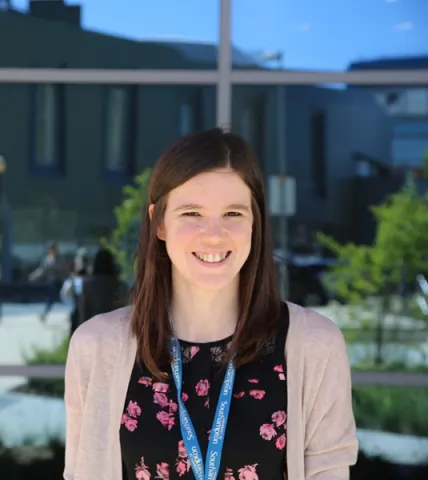Project overview
This research aims to build on the feasibility work conducted in the Empathica study to determine the effectiveness and cost-effectiveness of the EMPathicO training for Primary Care Pracitioners (PCPs) in improving outcomes for patients presenting with MSK pain and other conditions in primary care.
Musculoskeletal (MSK) pain is a big problem for patients and as the population ages it is set to become an even bigger one. Osteoarthritis is a leading cause of MSK pain. Back pain and neck pain are also very common. MSK pain is difficult to treat with pain affecting patients’ social life, wellbeing and employment. Many primary care appointments involve patients who have MSK pain and it can be difficult to know how best to help these patients. “Primary care appointments” includes consultations that patients have with GPs, nurses, and some physiotherapists. Primary care appointments include telephone or video as well as face to face.
Previous research we conducted shows that it is possible to change the way GPs communicate with patients about MSK pain. And our reviews of other people’s research show that changing GP communication can actually help reduce pain and improve patient’s quality of life and satisfaction with the GP. This is probably also true for other primary care clinicians like nurses and physiotherapists although research has tended to focus on GPs. Better communication may also increase patients’ confidence to manage their health and reduce the need for further primary care appointments. This is good for patients in that they feel less pain and are more able to manage their condition, good for doctors as they are giving a better service, and good for the NHS as it enables best use of limited primary care appointments. This current study aims to quantify these benefits.
We have been testing a communication e-learning training package that we developed in a previous research project (EmpathicO) which helps GPs, nurses, and physiotherapists deliver positive empathic care. We are testing whether GPs and others can deliver positive empathic care during remote and in-person consultations. We have measured the effects on the patient’s pain, other symptoms, and quality of life and the cost of delivering the training and the economic costs and benefits of doing so. We are doing this by comparing primary care practices that have been trained to deliver positive empathic care with practices that have not had the EmpathicO training (we call this a randomised controlled trial). We think positive empathic care might benefit other patients, as well as those who have MSK pain. Therefore, in our project we are also including patients who have appointments for other symptoms.
We hope that the evidence we will gather will enable the NHS to deliver better care for patients with MSK pain and other symptoms. If shown to be successful, this training could quickly be made available at low cost to primary care practices across the country.
UPDATE
Recruitment to the trial was successfully completed in December 2023, and participants were followed up until June 2024. In total, 1682 patients and 236 primary care practitioners were recruited from 53 sites across England and Wales.
We expect the initial results to be available in Winter 2024/ Spring 2025.
Study Team:
Co-Lead Investigators: Prof Felicity Bishop and Prof Hazel Everitt
Co-investigators: Prof Paul Little, Prof Geraldine Leydon, Dr Beth Stuart, Dr Leanne Morrison, Dr Jane Vennik, Prof Christian Mallen, Dr Lorna Clarson, Prof Matthew Ridd, Dr Kirsty Garfield, Dr Jeremy Howick, Dr Helen Atherton.
PPI co-applicant: Mrs Jennifer Bostock.
Musculoskeletal (MSK) pain is a big problem for patients and as the population ages it is set to become an even bigger one. Osteoarthritis is a leading cause of MSK pain. Back pain and neck pain are also very common. MSK pain is difficult to treat with pain affecting patients’ social life, wellbeing and employment. Many primary care appointments involve patients who have MSK pain and it can be difficult to know how best to help these patients. “Primary care appointments” includes consultations that patients have with GPs, nurses, and some physiotherapists. Primary care appointments include telephone or video as well as face to face.
Previous research we conducted shows that it is possible to change the way GPs communicate with patients about MSK pain. And our reviews of other people’s research show that changing GP communication can actually help reduce pain and improve patient’s quality of life and satisfaction with the GP. This is probably also true for other primary care clinicians like nurses and physiotherapists although research has tended to focus on GPs. Better communication may also increase patients’ confidence to manage their health and reduce the need for further primary care appointments. This is good for patients in that they feel less pain and are more able to manage their condition, good for doctors as they are giving a better service, and good for the NHS as it enables best use of limited primary care appointments. This current study aims to quantify these benefits.
We have been testing a communication e-learning training package that we developed in a previous research project (EmpathicO) which helps GPs, nurses, and physiotherapists deliver positive empathic care. We are testing whether GPs and others can deliver positive empathic care during remote and in-person consultations. We have measured the effects on the patient’s pain, other symptoms, and quality of life and the cost of delivering the training and the economic costs and benefits of doing so. We are doing this by comparing primary care practices that have been trained to deliver positive empathic care with practices that have not had the EmpathicO training (we call this a randomised controlled trial). We think positive empathic care might benefit other patients, as well as those who have MSK pain. Therefore, in our project we are also including patients who have appointments for other symptoms.
We hope that the evidence we will gather will enable the NHS to deliver better care for patients with MSK pain and other symptoms. If shown to be successful, this training could quickly be made available at low cost to primary care practices across the country.
UPDATE
Recruitment to the trial was successfully completed in December 2023, and participants were followed up until June 2024. In total, 1682 patients and 236 primary care practitioners were recruited from 53 sites across England and Wales.
We expect the initial results to be available in Winter 2024/ Spring 2025.
Study Team:
Co-Lead Investigators: Prof Felicity Bishop and Prof Hazel Everitt
Co-investigators: Prof Paul Little, Prof Geraldine Leydon, Dr Beth Stuart, Dr Leanne Morrison, Dr Jane Vennik, Prof Christian Mallen, Dr Lorna Clarson, Prof Matthew Ridd, Dr Kirsty Garfield, Dr Jeremy Howick, Dr Helen Atherton.
PPI co-applicant: Mrs Jennifer Bostock.
Staff
Lead researchers
Other researchers
Collaborating research institutes, centres and groups
Research outputs
Hazel Everitt, Nadia Cross, Rachel Dewar-Haggart, Emma Teasdale, Matthew J. Ridd, Taeko Becque, Leanne Morrison, Sebastien Pollet, Jane Vennik, Helen Atherton, Geraldine Leydon, Nazrul Islam, Paul H. Lee, Paul Little & Felicity L. Bishop,
2024, BMJ Open, 14(3)
Type: article








